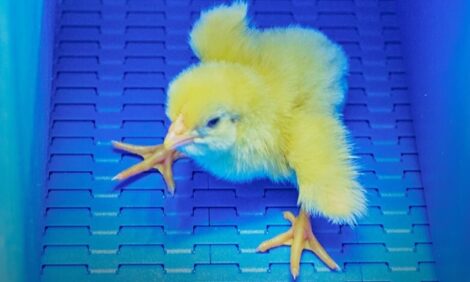



Soil and Broiler Litter Testing Basics
Nutrient management planning and sampling of soil and litter are covered in this factsheet from Mississippi State University.Nutrient Management
Almost all commercial-scale poultry operations in Mississippi are required by the Mississippi Department of Environmental Quality to have an environmental operating permit that includes a Nutrient Management Plan (NMP). Nutrient management concerns the amount, source, placement, form and timing of nutrient and soil amendment applications to ensure adequate soil fertility for plant production and to minimize harm to the environment. NMPs account for the nutrients available from the soil and other sources, crop nutrient use, soil and crop management practices, environmental risks, and documentation of how you use the soil.
Typically in the US, broiler chickens are grown on the floors of single-storey barns covered with two to six inches of bedding material, such as wood chips or rice hulls. Periodically, a total house clean-out replaces the bedding material, mixed with the animal manure (litter), with new material. Wet surface material (cake) is removed every few weeks between each group of grown chickens. Both litter and cake commonly are land-applied at rates to adequately fertilize the plants and protect the environment as determined by the NMP process.
Soil Samples
In developing an NMP, you should include site-specific soil testing and litter analysis. Detailed instructions for soil testing are available at your MSU Extension Service office or online [click here].
When the MSU Extension Service Soil Testing Laboratory analyses your samples, you will receive fertility recommendations for each soil sample, according to the crops you indicated on the soil testing form. You will also receive nutrient levels, pH and lime requirements. The Soil Testing Laboratory does not routinely analyse for nitrogen in soil samples. Normal turn-around time is four to seven working days once the laboratory receives the samples.
The forms and soil sample boxes are available from your county Extension office. The cost is $6 for each sample. Commercial soil testing services are also available in Mississippi.
Litter Samples
Litter sampling follows the same principles as soil testing, except you use a house instead of a field. Divide the house into five equal sections. Take a sample from three places across the house in each section. Do not include underlying soil in the samples. Blend the fifteen samples, then submit a portion for analysis to the Mississippi State Chemical Laboratory.
Submission forms are available at county Extension offices or from the State Chemical Laboratory (662-325-3324, www.mscl.msstate.edu). Submit litter samples in plastic bags. Nitrogen, phosphorus and potassium analysis is $105 per sample. Usual turn-around time is seven to 10 working days.
Commercial laboratories are also available for litter sample analysis. Contact your Extension county director or Extension area agronomy agent for commercial laboratory information.
December 2011








